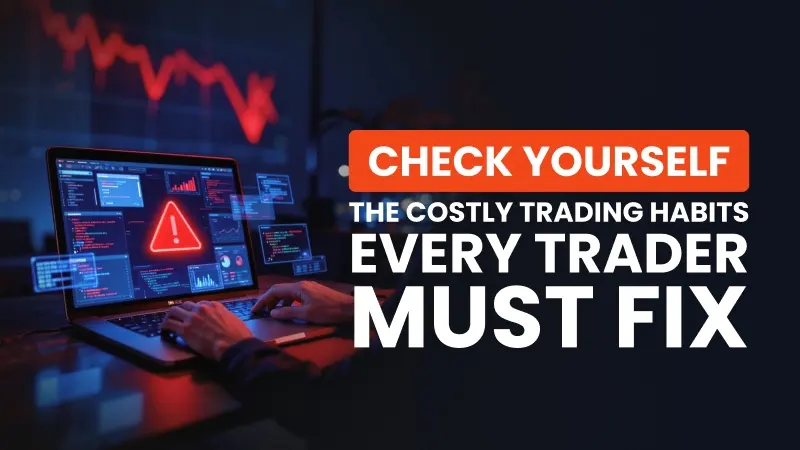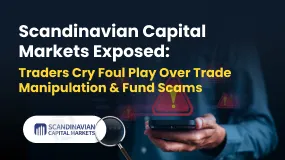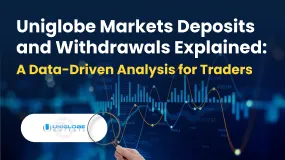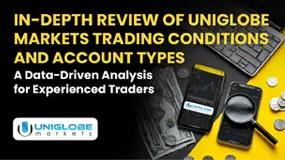简体中文
繁體中文
English
Pусский
日本語
ภาษาไทย
Tiếng Việt
Bahasa Indonesia
Español
हिन्दी
Filippiiniläinen
Français
Deutsch
Português
Türkçe
한국어
العربية
To Earn Money, You Need To Deal With Your Problems First
Abstract:Undoubtedly, every Forex trader that participates in the currency markets hopes to grow their trading capital. However, while the prices are constantly fluctuating, many find themselves losing their cool when effort does not guarantee results over time. Today, let us dive into some of the problems that many traders might not want to admit or even know they have.

<WikiFX Malaysia Original: Editor – Fion>
1. Trying to catch every pip
This is one of the most common issues among retail traders and/or investors. They are so engrossed with the idea of taking as many trades as possible hoping to catch every pip move throughout the day. Oftentimes, they find themselves sitting in front of the screen all day long and making an amount of money that is not up to par with their effort. At this point, trading feels like hard labour that reaps no satisfying rewards.

2. Having zero knowledge about macroeconomics
If you are a technical trader, you certainly do not need to know all the ins and outs of macroeconomics like a professional economist. However, a certain level of knowledge in this field can boost your trading. Trading is a market with a low barrier to entry, so it is always beneficial to learn more than others to continuously sharpen our trading skills. A few crucial topics to learn are the economic cycles (boom, recession, depression, and recovery), effects of the tightening or easing of monetary policy, and any high-impact news or announcements. Having a better understanding of the big picture could help you make better decisions with greater confidence and peace of mind when placing a trade.
3. Comfortable with paper losses but uneasy with paper gains
This sounds counterproductive and counterintuitive, but this is a dark secret carried within many traders that they do not want to admit. These traders tend to cling to their position when they are in a drawdown, as they have this false belief of “it is not a loss as long as I am still holding it”. They could tolerate a massive drawdown but when a trade is running with an insignificant amount of profit (in comparison with their risk tolerance), they tend to close it off impatiently just so they could avoid being in a drawdown again. This is one of the biggest reasons why some traders wipe off all the years of hard work with just a single losing trade.

4. Keeping everything small (a little too small)
Contradicting point 3, this is a group of people that falls on the other side of the spectrum. These traders cut their losses quickly but at the same time, they also take their profits instantaneously thinking that they are accumulating and compounding their profits. Although this practice minimizes risk and protects one‘s trading capital, it is hard to difficult to grow one’s trading account. Some traders that fall into this category may even unknowingly take trades that are not worth the risk-reward-ratio. Constantly exiting trades pre-maturely just to secure small profits not only increases the cost of trading in terms of money, time, and effort, but it often causes a trader to miss out on a great opportunity before the strong impulsive momentum begins in the direction of his analysis.
<WikiFX Malaysia Original: Editor – Fion>

Disclaimer:
The views in this article only represent the author's personal views, and do not constitute investment advice on this platform. This platform does not guarantee the accuracy, completeness and timeliness of the information in the article, and will not be liable for any loss caused by the use of or reliance on the information in the article.
Read more

Check Yourself: The Costly Trading Habits Every Trader Must Fix
Are the trading habits you barely notice the very ones quietly destroying your profits, and could a single overlooked mistake be costing you far more than you realise?

Scandinavian Capital Markets Exposed: Traders Cry Foul Play Over Trade Manipulation & Fund Scams
Does Scandinavian Capital Markets stipulate heavy margin requirements to keep you out of positions? Have you been deceived by their price manipulation tactic? Have you lost all your investments as the broker did not have risk management in place? Were you persuaded to bet on too risky and scam-ridden instruments by the broker officials? These are some burning issues traders face here. In this Scandinavian Capital Markets review guide, we have discussed these issues. Read on to explore them.

Uniglobe Markets Deposits and Withdrawals Explained: A Data-Driven Analysis for Traders
For any experienced trader, the integrity of a broker isn't just measured in pips and spreads; it's fundamentally defined by the reliability and transparency of its financial operations. The ability to deposit and, more importantly, withdraw capital seamlessly is the bedrock of trust between a trader and their brokerage. When this process is fraught with delays, ambiguity, or outright failure, it undermines the entire trading relationship. This in-depth analysis focuses on Uniglobe Markets, a broker that has been operational for 5-10 years and presents itself as a world-class trading partner. We will move beyond the marketing claims to scrutinize the realities of its funding mechanisms. By examining available data on Uniglobe Markets deposits and withdrawals, we aim to provide a clear, evidence-based picture for traders evaluating this broker for long-term engagement. Our investigation will be anchored primarily in verified records and user exposure reports to explain the Uniglobe Mar

In-Depth Review of Uniglobe Markets Trading Conditions and Account Types – An Analysis for Traders
For experienced traders, selecting a broker is a meticulous process that extends far beyond headline spreads and bonus offers. It involves a deep dive into the fundamental structure of a broker's offering: its regulatory standing, the integrity of its trading conditions, and the flexibility of its account types. Uniglobe Markets, a broker with an operational history spanning over five years, presents a complex case study. It offers seemingly attractive conditions, including high leverage and a diverse account structure, yet operates within a regulatory framework that demands intense scrutiny. This in-depth analysis will dissect the Uniglobe Markets trading conditions and account types, using data primarily sourced from the global broker inquiry platform, WikiFX. We will explore the Uniglobe Markets minimum deposit, leverage, and account types to provide a clear, data-driven perspective for traders evaluating this broker as a potential long-term partner.
WikiFX Broker
Latest News
The 350 Per Cent Promise That Cost Her RM604,000
"Just 9 More Lots": Inside the Endless Withdrawal Loop at Grand Capital
GCash Rolls Out Virtual US Account to Cut Forex Fees for Filipinos
Garanti BBVA Securities Exposed: Traders Report Unfair Charges & Poor Customer Service
Private payroll losses accelerated in the past four weeks, ADP reports
INZO Commission Fees and Spreads Breakdown: A 2025 Data-Driven Analysis for Traders
Gratitude Beyond Borders: WikiFX Thank You This Thanksgiving
Core wholesale prices rose less than expected in September; retail sales gain
Consumer confidence hits lowest point since April as job worries grow
MH Markets Commission Fees and Spreads Analysis: A Data-Driven Breakdown for Traders
Currency Calculator



